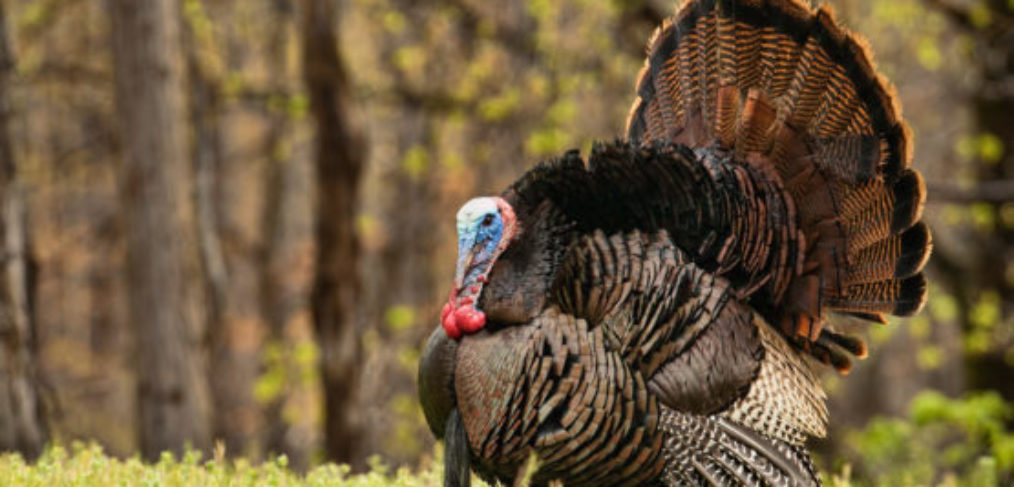Sourcing Your Thanksgiving Turkey

Did your turkey come from a farm such as one shown above?
With Thanksgiving just around the corner, chances are you’ve already got your guest list and your menu planned, and the likelihood that a turkey is going to be the pièce de ré·sis·tance is quite high.
But do you know where that bird is coming from?
How it was raised, whether it was treated humanely and consequently, if it was the best option?
If, in years passed, you simply opted to stop into your local grocer and choose a bird simply by how much it weighed or order online from your favorite gourmet shop based on convenience, this year can be the time to make a difference.
A couple of things to consider when choosing your bird:
- In factory farms, turkeys are so overcrowded, they often climb onto each other’s backs to get away from each other. Their talons tear into each other, causing pain and severe distress. Factory farms amputate the birds’ toes to keep them from doing this to each other (1).
- An alarming 99% of turkeys come from farms just like this (2).
If you’re feeling shocked, good. The raw truth is that this information isn’t exactly broadcast to the masses, but that needn’t be a call to run towards veganism.
There are ways to properly source a turkey (and all of your proteins, for that matter) without having to make ethical compromises.
So how does one determine how to find a bird of this description?
Below are some simple steps and things to look for when buying your holiday turkey:
- The Certified Humane® stamp of approval is a good starting point; they don’t allow for turkey toe amputation, we require sufficient space to support the bird’s natural behaviors, such as flapping wings and moving around freely. Certified Humane® turkeys also must receive environmental enrichments, like bales of straw or hay, so they can perch above ground at night. They have strict air quality and air testing requirements and must receive a minimum of 8 hours of light and 8 hours of darkness every day to maintain their natural life-cycles.
- Don’t be fooled by the ‘organic’ label; it’s not enough. While this does mean the birds can only be given organic feed, no antibiotics or anti-fungals and that the facilities the birds are raised in have not had any synthetic products such as herbicides and sanitation chemicals used in them for a period of time, it doesn’t necessarily speak at all to the quality of life (or lack thereof) that the birds may have had.
- In addition, be wary of ‘free-range’; free range only means the turkeys have “access” to open air but that “access” is usually little more than a small door in the barn that leads to an overcrowded pen outside (3).
- What you really want to look for are pasture raised turkeys (just as when purchasing chickens). Pasture raised turkeys are free to eat grass, bugs, seeds and worms; food that turkeys are supposed to eat. Since they aren’t just stuck in a cage and fed “turkey-feed” the meat develops a much richer flavor. The color of the meat will also be darker. (4)
So just where do you find these birds?
- Start locally; check in with your local farmer’s markets. It’s not uncommon for your local poultry provide to offer turkeys at this time of year.
- Check online, too. Sites such as Eat Wild (5), founded in 2001 to promote the benefits—to consumers, farmers, animals, and the planet—of choosing meat, eggs, and dairy products from 100% grass-fed animals or other non-ruminant animals fed their natural diets, are excellent resources in helping guide you to the most sustainable turkeys… and every other properly sourced protein or dairy you may be looking for.
- Consider going wild. Wild turkeys live in 49 of our 50 US states. If you don’t happen to be a hunter (I’m not either, by the way), there are some resources at your disposal as well; there are humane, online retailers as well that will sell you wild turkey to enjoy with your friend and family at your Thanksgiving celebration.
Be sure to stay tuned for more posts on top tips to prep for the big meal, in a stress free manner that allows you to enjoy the process!
(1) https://certifiedhumane.org/whats-difference-factory-farm-turkey-certified-humane-turkey/
(2) https://www.livekindly.co/99-animal-products-factory-farms/
(3) https://www.fsis.usda.gov/food-safety/safe-food-handling-and-preparation/poultry/turkey-farm-table
(4) https://completecarnivore.com/where-to-buy-pasture-raised-turkey/





